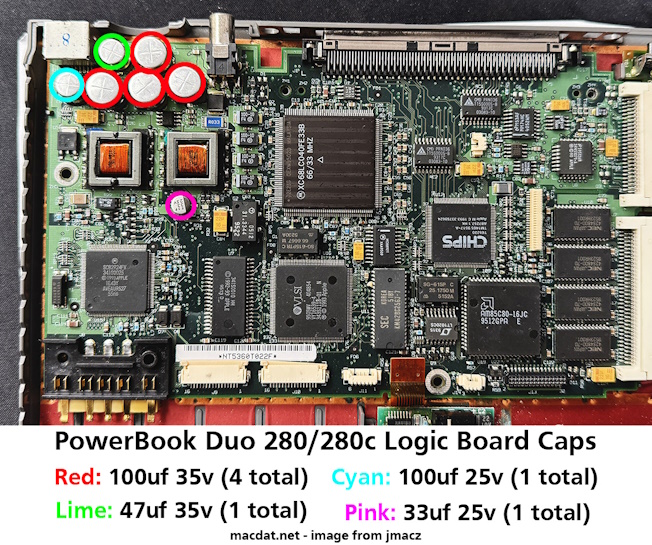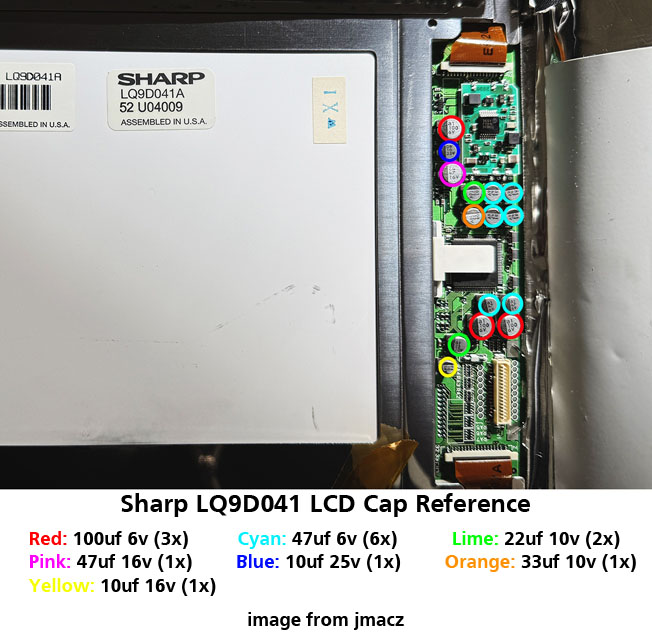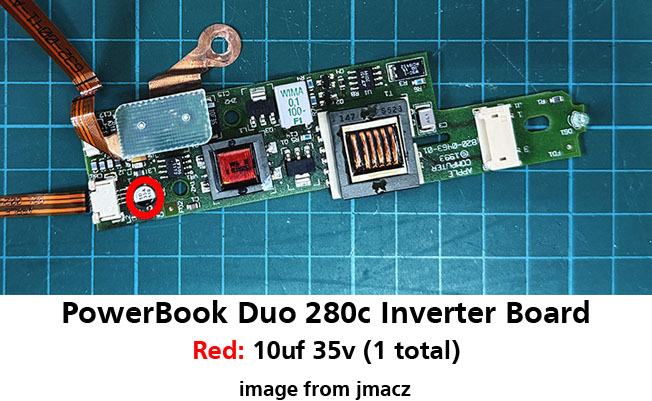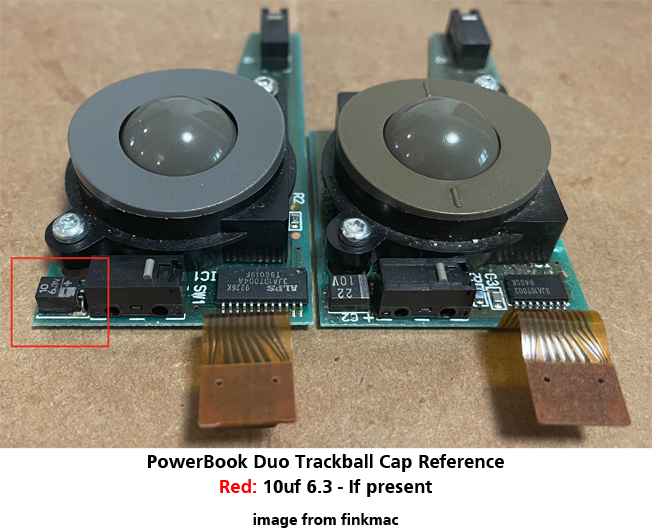Capacitor Reference - PowerBook Duo 280c
The Duo 280c must be fully recapped. Running one on original caps introduces a high risk of the cap goo causing a short circuit, leading to the logic board being permanently destroyed.
Do not replace the LCD caps with ceramic capacitors. They may work, but have been shown to result in drifting contrast on certain LCD displays. This is caused by ceramic capacitors' characteristic where the capacitance varies based on voltage load.
Reference Values
Logic Board
| Value | Count | Type |
|---|---|---|
| 100uf 35v | 4 | Surface-Mount Electrolytic |
| 100uf 25v | 1 | Surface-Mount Electrolytic |
| 47uf 35v | 1 | Surface-Mount Electrolytic |
| 33uf 25v | 1 | Surface-Mount Electrolytic |
LCD (Sharp LQ9D041)
| Value | Count | Type |
|---|---|---|
| 100uf 6v | 3 | Surface-Mount Electrolytic |
| 47uf 16v | 1 | Surface-Mount Electrolytic |
| 47uf 6v | 6 | Surface-Mount Electrolytic |
| 33uf 10v | 1 | Surface-Mount Electrolytic |
| 22uf 10v | 2 | Surface-Mount Electrolytic |
| 10uf 25v | 1 | Surface-Mount Electrolytic |
| 10uf 16v | 1 | Surface-Mount Electrolytic |
Backlight Inverter Board
| Value | Count | Type |
|---|---|---|
| 10uf 35v | 1 | Surface-Mount Electrolytic |
Trackball
Earlier revisions of the Duo trackball have a single leaky cap on them - one of those "impostor tantalum" caps that's actually an electrolytic. The later revisions use a 22uf 10v tantalum cap instead. Chances are that a 280c would be safe from this, but check just in case.
| Value | Count | Type |
|---|---|---|
| 10uf 6.3v | 1 | Low Profile Surface-Mount Electrolytic |
Reference Images
Click on an image to view the full-size version.
Logic Board

LCD

Inverter

Trackball
Module on the left has the leaky cap, module on the right has the non-leaky tantalum cap.

Page last updated (MM/DD/YYYY): 03/19/2025
Update Reason: page rewritten
Back-Navigation
Home < Repair Portal < Capacitor Reference Library < PowerBook Duo 280c